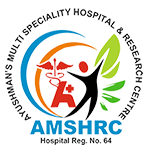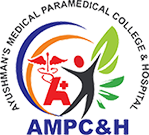Bachelor of Vocation
Bachelor of Vocation, is a three-year undergraduate degree program launched by the University Grants Commission (UGC) focused on skills development and employment readiness. It combines theoretical education with practical, application-based learning and on-the-job training, allowing students to gain industry-specific skills.
- Key features include multiple entry and exit options (awarding a Diploma after the first year and an Advanced Diploma after the second), industry-integrated curricula, and collaboration with companies to provide practical experience and a modest stipend.
- They enable the physicians and doctors to diagnose and treat the conditions that have come out through the documentation done by the radiology technician.



BENEFITS
Job Readiness:
Graduates are equipped with practical skills and industry experience, making them job-ready upon completion.
Earn While You Learn:Students can earn a modest stipend during their on-the-job training period.
Entrepreneurial Skills:The program also fosters entrepreneurial skills, enabling graduates to become business owners or innovators.
Key Aspects of B.Voc Programs
Practical & Skill-Based:
The program emphasizes practical skills and job-oriented training, bridging the gap between academic knowledge and industry requirements.
Industry-Integrated Curriculum:
Courses are often developed in collaboration with industry partners, ensuring the curriculum is relevant and up-to-date.
Multiple Entry/Exit Options:
Students can opt for a Diploma after one year or an Advanced Diploma after two years, providing flexible pathways.
On-the-Job Training:
A significant portion of the learning happens on the actual “shop floor” of an industry, enabling students to learn through doing.Career-Focused:
The goal is to prepare graduates for specific jobs, entrepreneurship, and meaningful participation in the economy.Variety of Specializations:
B.Voc courses are available in diverse fields.

